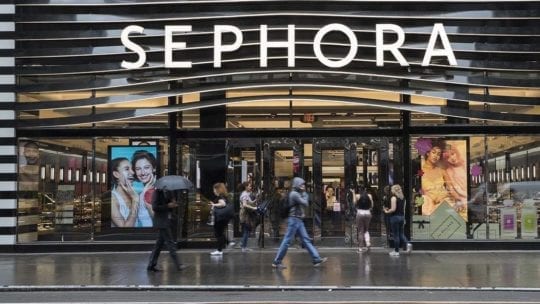
If you are following the crisis communications playbook, you know that taking swift, deliberate and public action to right a wrong can not only mitigate a brand crisis—it can flip the narrative and attract new followers.
After a Sephora employee in California apparently racially profiled celebrity singer and songwriter SZA, who blasted the brand on social media, Sephora swiftly decided to close down all operations for an hour today so that employees can receive inclusion and diversity training. This appears to be a crisis response inspired by similar action taken by Starbucks, after two black men were arrested while doing nothing but waiting at a table for a colleague. That effort received high praise and showed communicators how powerful eating crow and taking action to do better can be.
Sephora now pushing the message that this training was a preplanned initiative that has nothing to do with the SZA incident seems a big missed opportunity for the brand.
Tadd Schwartz, president of Miami-based Schwartz Media Strategies, agrees.
"Even if the company-wide diversity training was pre-planned, Sephora should own it and use this to their advantage," Schwartz said.
"In my opinion, Sephora is doing the right thing, so there’s no need to run away from it. They are proactively acknowledging that no corporate culture is perfect and consistent employee outreach, communication and training is a necessity. Maybe the training was in fact pre-scheduled, fine. But if that’s the case, then they have an opportunity to turn a negative into a positive for the brand. Don’t walk the message back by downplaying the significance of what happened with SZA."
Hollywood Agency account supervisor Brooks Wallace pointed out that SZA's incident presented an opportunity for the large corporate makeup brand to show its more authentic, human side.
"In any crisis communication situation, what the public wants to hear is an apology and admission of guilt. That humanizes a brand," Wallace said. "It’s a signal that the brand is listening to its community, which is all [that] the customers—and the wronged—want to hear. A simple 'we apologize, we hear you, and we’re going to make it right' would’ve sufficed for Sephora."
Wallace said that if Sephora was her client, "I’d recommend their leadership come out with a proactive statement about how the company has learned from this experience, appreciates SZA bringing it to their attention, and announce a yearlong effort to consistently assess diversity and inclusion efforts—not just a one-hour workshop."
"Perhaps they could even have their CEO and SZA offer a joint statement—perhaps via a short video, if SZA were willing—about the importance of speaking up and making change happen, showing they’ve made amends. Offering a little humility and eating crow, while praising SZA for speaking up, could go a long way. And having a top executive do it, like the CEO, would show how seriously the company is taking it."
"I would agree that it seems like a hollow brand message to the public to say the timing of this training wasn’t connected to this incident," added Patrick Gevas, vice president of
GreenRoom. "In today’s challenging retail climate, it’s largely unthinkable to close all locations and miss out on sales as part of a routine. It also points to a larger issue in the training and onboarding of the employees on the front-side of hiring and taking steps throughout the year to prove their commitment to diversity. When something like this occurs, they can take swift disciplinary action and point to their track record of diversity which is ultimately a much stronger brand presence but also the right thing to do."
In the end, Sephora may miss out on these opportunities. But the bottom line is that brands are becoming aware of the need for this kind of training, and that's a good thing.
"If anything [it] shows that the Starbucks model has set a new standard for companies confronting the reality that a single employee who ‘goes rogue’ can tarnish the brand and cause a crisis," Schwartz said. "It also underscores the need for continual diversity training and similar efforts. These type of employee training sessions shouldn’t be knee-jerk."

